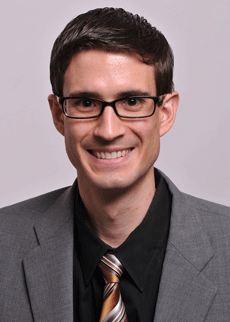MPA degree offerings at Northeastern University

As part of Govpro.com’s series on Master’s of Public Administration (MPA) programs and their value to government administrators, here are the views of Thomas Vicino, assistant professor of political science and chair of Northeastern University’s MPA program.
Govpro.com has profiled the University of Pennsylvania MPA program, Ohio State University’s MPA, the University of Texas at San Antonio program and other MPA degree offerings.
Northeastern is a private research university in Boston. It works to integrate classroom learning with real-world experience. Go here for more information on the school’s MPA degree offering.
Govpro: Should government employees and others consider earning an MPA degree in 2012?
Thomas Vicino: 2012 is a great time to earn an MPA degree! As the economy rebounds, many prospective students are seeking to re-tool their careers to gain new skillsets and experience to give them an edge in the marketplace. Nearly one-third of the public sector labor force is estimated to retire by the end of the decade. This is creating a large demand for a new labor force to join the ranks of managers, analysts and leaders as a new generation, and as the public and non-profit sector grows.
The MPA is a professional degree. Acceptance into an MPA program signifies a high level of achievement in previous professional and academic efforts, and demonstrates a commitment to excellence in public service and the study of public policy and administration. MPA students come from a wide variety of academic and professional backgrounds. Many students are, or have been, employed in the public and non-profit sectors.
Govpro: Can you please tell us about Northeastern’s MPA program?
TV: The MPA program at Northeastern University was founded in 1969. It integrates theoretical foundations with practical skills in the public sector. The MPA program is accredited by the National Association of Schools of Public Affairs and Administration (NASPAA) and housed within the Department of Political Science. The program is directed toward defining and developing analytical, conceptual and practical competencies for management and leadership careers in the public or non-profit sectors.
Govpro: What are some characteristics of the Northeastern MPA?
TV: The MPA degree program is comprised of approximately 120 students served by full-time professors at Northeastern as well as part-time faculty who are accomplished professionals in the public sector. Areas of faculty expertise include public policy analysis, budgeting, U.S. government, community development, urban affairs, and a variety of other substantive public policy areas.
Three general themes underlie our efforts to help students develop and sharpen the skills and capacities they will need for a career in public service or in the nonprofit sector. We strive to provide students with effective and relevant instruction in a curriculum that integrates theoretical foundations with practical skills. In turn, we expect students to extend every effort in their courses to meet high standards of academic excellence.
Our program is directed toward defining and developing analytical, conceptual and practical competencies. Practicing public administrators among our adjunct faculty and student body provide linkages with all levels of government, permitting us a unique opportunity to maintain a high level of professional relevance.
Similarly, the Northeastern program offers a high degree of flexibility. Students may earn the full degree online, on campus, or through a blended experience of online and on campus courses. Many students enjoy the benefits of both learning environments.
Finally, we strive to emphasize the “public” dimension of public administration. We view ourselves as being distinct from the private sector, motivated first by ethical and democratic imperatives to serve the public interest. Throughout the MPA program’s curriculum and activities, we will reiterate and focus upon the inherent public responsibilities.
Govpro: Do you have any advice for our readers on choosing an MPA degree program?
TV: Earning a professional master’s degree is a significant investment of time and money. Thus, it is critical the program be a good “fit” for you. Visit the campus. Attend a class. Talk to current students. Take a look at where alumni are employed. Seek out as much information as you can to make a well-informed decision.



















